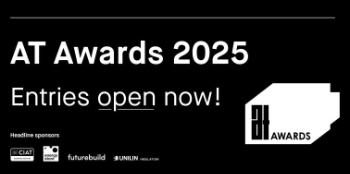Knowledge asset management
Knowledge Asset Management (KAM) is the approach to identifying, capturing, profiling, classifying, storing, maintaining, protecting, and exploiting knowledge assets of an organisation.
Knowledge Assets are valuable public assets, critical to the effective delivery of public and private services. It can be important to manage knowledge assets in order to ensure ther value is maximised and not lost or under-utilised.
The UK government providers guidance on knowledge asset management and publishes the Rose Book, they state that that for the public sector, all public sector organisations should have a strategy in place to support the effective management of Knowledge Assets. This will include measures to:
- identify Knowledge Assets
- consider and execute appropriate protection of Knowledge Assets
- support exploitation of Knowledge Assets
Knowledge Assets can have considerable value and impact beyond their original purpose and exploiting this is part of good asset management. This value can be social, economic and financial, and is often a combination of these. Each organisation should consider how best to apply the guidance based on the extent of their Knowledge Asset ownership and should take a proportionate approach. It is recommended that all organisations:
- develop a Knowledge Assets Management Strategy (KAMS), as part of their wider asset management strategy (a requirement of MPM)
- appoint a Senior Responsible Owner (SRO) for Knowledge Assets who has clear responsibility for the organisation’s KAMS
It states that there is no ‘one size fits all’ for KAMS and the structure, length and detail will depend on the organisational needs and the number and type of Knowledge Assets (KAs) it owns. More information on what is included in a KAMS can be found in The Rose Book: Guidance on Knowledge Asset management in government.
The SRO should hold a senior leadership position within the organisation and be able to influence the business area(s) and/or resources from which Knowledge Asset management outcomes will be delivered.
In the first instance, the role of SRO may fall to the person responsible for the organisation’s overarching asset management strategy. In many cases it may be more appropriate for another person to be designated as SRO (such as a senior person in the area of business that is most Knowledge Asset intensive); this will depend on the nature of the organisation. More information on the role of a Knowledge Asset SRO and how to appoint one is available in Government Office for Technology Transfer (GOTT) published guidance.
[edit] Related articles on Designing Buildings
- Asset management.
- BIM glossary of terms.
- BIM resources.
- BS ISO 55000:2014 Asset management. Overview, principles and terminology.
- Building information modelling.
- Built asset.
- Concept-knowledge theory.
- Constructed asset.
- Construction knowledge sources.
- Construction knowledge survey.
- Construction knowledge.
- Data.
- Enterprise asset management.
- Fixed asset.
- Indigenous knowledge.
- Knowledge.
- Knowledge based economy.
- Knowledge classification.
- Knowledge gap.
- Knowledge management in construction.
- Knowledge pyramid.
- Knowledge standard.
- Knowledge task group.
- Local knowledge.
- PAS 1192-2.
- PAS 1192-3.
- Real estate.
- Specification for Discoverable Construction Knowledge.
- Stranded assets.
- Tangible v intangible assets.
- Traditional knowledge.
- Types of construction knowledge.
Featured articles and news
Shading for housing, a design guide
A look back at embedding a new culture of shading.
The Architectural Technology Awards
The AT Awards 2025 are open for entries!
ECA Blueprint for Electrification
The 'mosaic of interconnected challenges' and how to deliver the UK’s Transition to Clean Power.
Grenfell Tower Principal Contractor Award notice
Tower repair and maintenance contractor announced as demolition contractor.
Passivhaus social homes benefit from heat pump service
Sixteen new homes designed and built to achieve Passivhaus constructed in Dumfries & Galloway.
CABE Publishes Results of 2025 Building Control Survey
Concern over lack of understanding of how roles have changed since the introduction of the BSA 2022.
British Architectural Sculpture 1851-1951
A rich heritage of decorative and figurative sculpture. Book review.
A programme to tackle the lack of diversity.
Independent Building Control review panel
Five members of the newly established, Grenfell Tower Inquiry recommended, panel appointed.
Welsh Recharging Electrical Skills Charter progresses
ECA progressing on the ‘asks’ of the Recharging Electrical Skills Charter at the Senedd in Wales.
A brief history from 1890s to 2020s.
CIOB and CORBON combine forces
To elevate professional standards in Nigeria’s construction industry.
Amendment to the GB Energy Bill welcomed by ECA
Move prevents nationally-owned energy company from investing in solar panels produced by modern slavery.
Gregor Harvie argues that AI is state-sanctioned theft of IP.
Experimental AI housing target help for councils
Experimental AI could help councils meet housing targets by digitising records.
BSRIA Occupant Wellbeing survey BOW
Occupant satisfaction and wellbeing tool inc. physical environment, indoor facilities, functionality and accessibility.






















